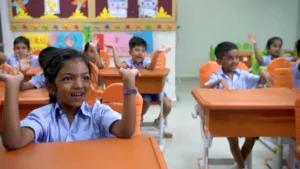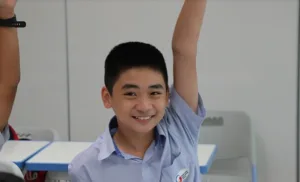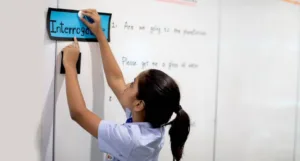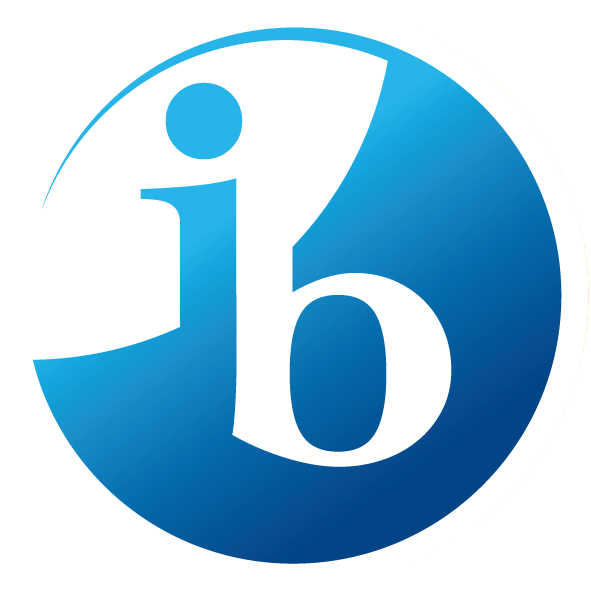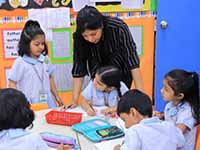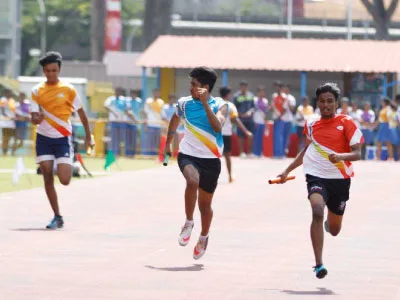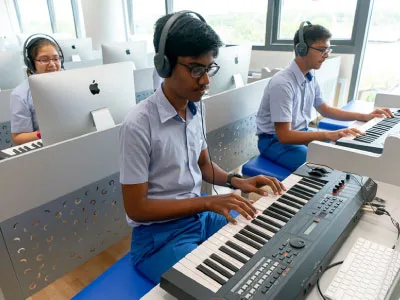“Why fit in when you were born to stand out?”- Dr. Seuss
As our children venture into this world, full of wonders and excitement, make social connections and navigate relationships, challenges become an unavoidable part of this journey. Some of these challenges can arise from delays or disruptions in the development of age-appropriate thinking, behaviours, social skills, or emotions.
These issues can disrupt their ability to function well in school, at home, or in other social settings.
Fortunately, parents, caregivers and schools can identify behavioural concerns and incorporate strategic interventions to support children. Together, we can equip our children to develop helpful coping strategies as we promote mental health and wellness.
Observe early signs of behavioural issues
Young children don’t have the vocabulary or awareness to identify big feelings, thoughts or challenges such as anger or anxiety. This means parents, caregivers and teachers must pay attention, and observe children as they complete school work, play with peers and interact with family members in their natural settings.
Possible early signs of observable behavioural symptoms include:
1. Changes in mood or behaviour. An upbeat or cheerful child may become withdrawn, sullen or angry. Or a withdrawn child may seek attention and act silly.
2. Unusual sleeping or eating patterns. Children may cope with emotional challenges by sleeping more than usual or staying up all night. They may also gain or lose weight, hide food or purge after eating.
3. Loss of interest in activities. To cope with big feelings and other challenges, children may stop spending time with friends, avoid extracurricular activities or no longer wish to participate in their favourite hobbies.
4. Lack of energy or motivation. Instead of facing the day with excitement and joy, children may have difficulty completing tasks like household chores or basic hygiene. They may prefer to sit alone in their room, scroll on their phones or sleep rather than participate in life.
5. Poor academic performance. They may lose interest in attending school or stop studying. They may also act up in class or refuse to interact with teachers and peers.
6. Physical symptoms. Stomach aches, headaches, digestive issues, unexplained pain and other physical symptoms could be signs of mental health distress.
Preventative measures to protect mental health
After parents and caregivers identify that their child may be facing a challenge, they can implement preventative measures that can equip children to manage their mental health now and in the future with more adaptive and effective strategies. Here’s how we can work toward the betterment of our children:
● Educate yourself about mental health. Learn about disorders and conditions, treatment options and community resources. In addition to bullying and mental health disorders, be open to playful and silly discussions about age-appropriate bodily functions, nature and related topics.
● Create a supportive and non-judgemental home environment. Encourage your child to express their feelings and avoid judging them or others. Be approachable and available. Set aside work and chores, and make time to play with your child to build a strong relationship that promotes trust.
To promote open communication, listen actively. For example, a call for “Mummy, come and play with me,” is an indirect way of asking for parent’s time. Create a ‘gadget-free’ family time on an everyday basis for the full family without failing to have more encouraging and secure feelings for the children.
Remain alert, lean in and focus on your child’s words and body language. And don’t prepare a response until your child has finished speaking. Nurture your child’s positive relationships. Encourage interaction with supportive peers and nurturing adult relatives, mentors and advisers, and train children to set healthy boundaries and limit toxic relationships.
● Welcome big feelings, practice awareness. Remind your child that a range of emotions is normal. Offer support, love and understanding whether they feel happy, calm, engaged, overwhelmed, distressed, enraged or depressed. Avoid criticism!
Instead, ask open-ended questions as you try to understand your child’s perspective. For example, instead of asking, “are you okay?” try asking, “how are you feeling right now?”
Learn to regulate your own emotions, too. Practise awareness, identify how you feel and learn coping strategies. Take ownership and responsibility for yourself as you model positive mental health.
● Foster a growth mindset, teach coping skills. When faced with losses, disappointments and frustrations, children may use maladaptive behaviours like throwing toys, pouting or verbal attacks. We can help our children reframe negative situations, uncover life lessons and practise gratitude as they develop resilience.
Teach coping skills like mindfulness, yoga, nature walks and breathing exercises. Or use a feelings chart, scale or wheel to identify the intensity and type of feelings we experience. Practise these coping skills during calm times so you and your children can confidently use the tools in stressful times.
Additionally, encourage a healthy lifestyle. A balanced diet, physical exercise and movement and adequate sleep boosts well-being. Likewise, set limits for social media, video games and other pursuits that interfere with your child’s health.
Finally, seek help when necessary.
Schedule an appointment with your child’s primary care physician or visit a professional therapist. An expert can offer strategies, treatment and tools that equip you and your child to manage various challenges.

Here’s how we support GIIS primary students
At GIIS, any unexpected student behaviour that may concern primary homeroom/ subject teachers is alerted to the primary school counsellor and the learning support teacher.
To understand the child’s struggles, a discrete observation is conducted by the counsellor in the school setting. After the completion of the observation, the counsellor contacts the parents for a discussion. It is also important to understand the child from the parent’s perspective as well as to know how the behaviour is demonstrated at home.
Once the parent has consented, the counsellor arranges individual sessions/classroom interventions /group interventions for the child at school.
Assistance provided on case-by-case basis
The intervention is provided on a case-by-case basis as each child’s needs may be different. During the sessions, since the counsellor is handling minors, she needs to build a strong rapport with them and make them feel safe to explore more, which is sometimes the first critical step in helping the young ones achieve the desired outcome.
A lot of play-based interventions and engaging activities focused on the child’s age and innate interests and needs are customised to help the child learn and unlearn behaviours, and adapt more rational coping strategies and skills to move forward effectively in life.
Supporting students to assess their emotional state
It is possible that a student may be going through big emotions, which is where ‘Rate your feelings’ chart, a simple yet impactful strategy, can be extremely helpful.
The student is asked by the counsellor to rate their feelings from 1-10 (happy as can be to feeling terrible). Whatever their rating is, they are made to understand that it is perfectly fine to undergo big emotions but the repercussions have to be thought about.
For example, it’s okay to feel angry, but it is not okay to hurt others, hurt yourself or hurt property. This is a very strong rule. As per the rating, they are taught to measure their feelings, reflect and take actions, like talking to an adult.
Furthermore, some of the other ways include giving students fresh paint and big brushes, which is soothing, teaching breathing techniques to calm down etc.
Addressing early signs of behavioural issues is essential for parents, caregivers and schools. While many members of our educated society have outgrown stigmas surrounding mental health, there is still a small group that refuses to move forward. This results in many children not receiving interventions they might benefit from.
We are reminded of the saying, “a stitch in time saves nine” when considering the well-being of young children. Many mental health issues occur before adulthood; in most cases, early childhood signs were not recognised, denied or not addressed.
The irony is that many problems can be nipped in the bud with timely intervention and right support. Start by identifying your child’s specific needs, then create interventions that work as you protect your children and promote mental health at home and at school.
At GIIS, all aspects of such matters are handled with the utmost confidentiality, sensitivity, respecting the individuality of all the students involved. Follow-up meetings with the counsellor are highly recommended for parents to stay informed about the process. At times, in case the issue needs more expertise, the counsellor guides the parent and supports them in taking the right decision.
If you are keen to know more about GIIS, please do not hesitate to contact our friendly admissions team.


